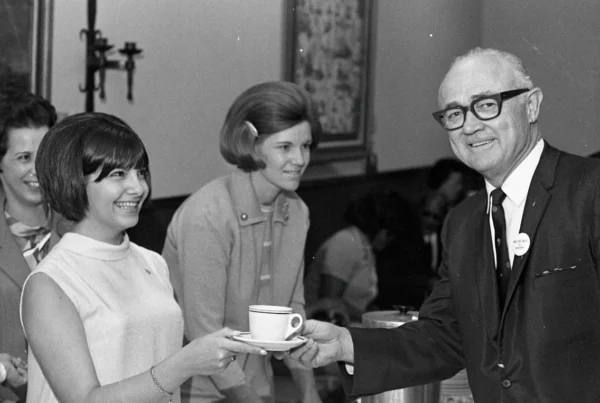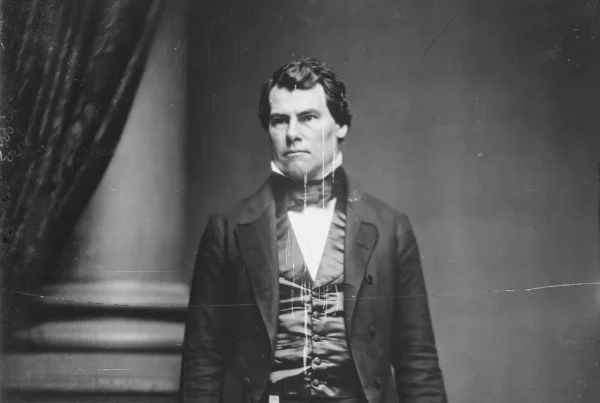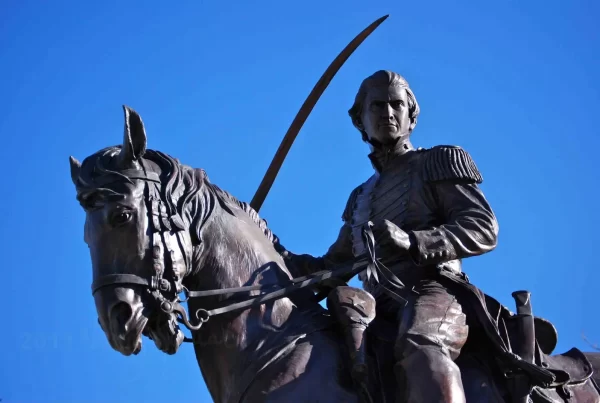Greg Abbott (born Gregory Wayne Abbott, November 13, 1957) is the 48th Governor of Texas, having held the office since January 20, 2015. A Republican and prominent figure in the modern conservative movement, Abbott has become one of the nation’s most visible governors through his hardline stances on border enforcement, gun rights, and abortion. His administration has positioned Texas at the center of the American culture wars, championing policies that resonate with national conservative priorities.
Abbott’s tenure has also been shaped by several high-profile crises, drawing both praise and criticism for his leadership. He has faced scrutiny for the state’s response to mass shootings in Santa Fe, El Paso, and Uvalde; the deadly Winter Storm Uri of 2021, which exposed vulnerabilities in the state’s independent power grid; and the 2024–25 flood emergencies, which renewed debates over infrastructure and preparedness.
Previously, Abbott served as Attorney General of Texas (2002–2015) and as a Justice on the Texas Supreme Court (1996–2001). He began his career as a state trial judge in Houston and has long emphasized individual responsibility, state sovereignty, and limited government—principles that continue to guide his public image and policymaking.
Governor of Texas
Abbott announced his candidacy for governor on July 14, 2013, just one week after incumbent Governor Rick Perry declared that he would not seek a fourth full term. At the time, Abbott was already the longest-serving Attorney General in Texas history and widely considered Perry’s most likely successor. His early entry into the race cleared the field of most serious Republican challengers, and he quickly secured endorsements from key conservative organizations, business leaders, and grassroots networks.
Abbott’s campaign emphasized continuity with Perry’s pro-business, low-tax policies, while also promising to expand the state’s focus on border security, religious liberty, and Second Amendment rights. His message appealed to both establishment Republicans and the party’s rising Tea Party wing, which was especially influential in Texas politics during the Obama presidency.
He easily won the Republican primary on March 4, 2014, capturing more than 90% of the vote against nominal opposition. In the general election, Abbott faced State Senator Wendy Davis, a Democrat from Fort Worth who had gained national attention the year before for her filibuster against a restrictive abortion bill. Despite Davis’s elevated media profile and strong fundraising, Abbott won the November election by nearly 19 percentage points, carrying over 200 of the state’s 254 counties and solidifying Republican control of statewide offices.
First Term (2015-2018)
Abbott began his first term in 2015 during a period of strong economic growth in Texas, marked by job creation and continued business expansion. He prioritized tax relief, signing measures that reduced the franchise tax, expanded sales tax exemptions, and proposed property tax cuts.
His administration promoted a socially conservative agenda, supporting religious liberty laws, opposing abortion access, and resisting federal policies on transgender rights. He also joined multi-state lawsuits challenging Obama-era regulations.
In 2017, Abbott oversaw the state’s response to Hurricane Harvey, mobilizing emergency resources and coordinating with local and federal agencies. The storm caused widespread flooding, especially in Houston, and became one of the costliest disasters in Texas history.
Abbott ended his first term with solid approval ratings and a reputation as a reliable but frequently combative conservative executive, known for leveraging legal action and sharp rhetoric against federal policies and political opponents.
Second Term (2019-2023)
Abbott ran for reelection in 2018 touting rising employment rates, rising high school graduation rates, and a crackdown on gang violence. Abbott defeated Democratic Lupe Valdez with about 56% of the vote.
During his second term, Abbott worked with the Texas Legislature to increase public education funding in 2019, including teachers’ salaries.
In 2020-2021, he oversaw the state’s response to the COVID-19 pandemic. His executive actions during the pandemic drew attacks from both the left and the right. Critics on the left accused him of not doing enough to protect the vulnerable and tying the hands of local officials. Critics on the right accused him of infringing too far on individual liberties, harming businesses, and overemphasizing the severity of the pandemic.
As the pandemic wore on, Abbott increasingly took executive actions to ban local governments from enacting their own restrictive pandemic rules or precautions. He also issued a largely symbolic executive order attempting to ban vaccine mandates by private businesses. Abbott himself contracted COVID-19 in August 2021 but quickly recovered. He said afterwards, “I am told that my infection was brief and mild because of the vaccination I received. So, I encourage others who have not yet received the vaccination to consider getting one.”
During the final year of his second term, Abbott adopted an increasingly aggressive approach to border security, launching Operation Lone Star, which involved the deployment of National Guard and Department of Public Safety troopers in a show of force meant to deter migrants from crossing into Texas. For the first time, Texas law enforcement also began charging migrants for trespassing on private land, an approach that Abbott said was necessary because of non-enforcement of immigration laws by federal authorities.
State forces also deployed razor wire and other physical obstacles in certain areas along the border, and Abbott declared that Texas would build its own border wall, after the Trump Administration failed to complete its stated goal of building a wall along the border.
Throughout his time in office, Abbott has advocated for laxer gun regulations. In June 2021, he signed into law HB 1927, a bill that eliminated the requirement for Texans to obtain a license to carry a handgun.
Texas experienced a rising number of mass shootings during Abbott’s tenure. He held a number of roundtable forums with survivors, including after the 2018 Santa Fe High School shooting and the 2019 El Paso Walmart shooting.
In 2021, Abbott called several special sessions of the Texas Legislature to address issues such as election integrity, the state’s response to the COVID-19 pandemic, and legislation related to abortion restrictions following the U.S. Supreme Court’s Dobbs decision.
Abbott specifically focused on election laws, pushing through new voting restrictions that he argued were necessary to ensure election security in Texas. This followed claims by former U.S. President Donald Trump that the 2020 election had been stolen from him.
Third Term (2023–Present)
Governor Abbott was reelected in November 2022, defeating Democratic challenger Beto O’Rourke. The election occurred amid a tumultuous period that included the COVID-19 pandemic, a statewide blackout, and the Uvalde school shooting. Abbott’s campaign aggressively portrayed O’Rourke as out of step with Texas voters, particularly on issues such as gun rights, immigration, and energy policy. He frequently tied O’Rourke to national Democratic figures and criticized his past calls for stricter gun laws and federal oversight.
The 2022 campaign was marked by intense debate over abortion laws and gun laws following the Dobbs decision and the Uvalde school shooting, which drew national scrutiny. O’Rourke sharply criticized Abbott for the state’s gun laws and accused him of failing to protect schoolchildren or hold law enforcement accountable.
In his third term, Abbott continued to advocate for conservative policies. In January 2025, he initiated Operation Lone Star, a border security initiative involving the deployment of National Guard and Department of Public Safety troopers to deter unauthorized crossings.
Additionally, Abbott expressed support for legalizing online sports betting in Texas, aligning the state with many others that have already done so. However, this proposal faces challenges, including constitutional restrictions that would require significant amendments.
Judicial Career
Abbott first held public office in Houston, where he served as a state trial judge for three years. In 1996, Governor George W. Bush appointed Abbott to the Texas Supreme Court. He then won election to the court in 1996 and 1998.
In 2001, after resigning from the Supreme Court, Abbott briefly went into private practice and worked for Bracewell & Giuliani LLC, before running for the post of Attorney General.
Attorney General of Texas
Abbott launched a run for lieutenant governor in 2001, but switched gears after campaigning for just a few months, opting instead for a run for Texas Attorney General, after the incumbent John Cornyn vacated the post to run for the U.S. Senate. Abbott defeated the Democratic candidate, former Austin mayor and then-state senator Kirk Watson, 57% to 41%.
Taking office in 2002, Abbott took a combative stance toward the Obama Administration, suing the federal government more than 40 times. These lawsuits involved carbon-emission standards, health-care, transgender rights, and other issues.
Abbott personally appeared before the U.S. Supreme Court in 2005 to defend a monument to the Ten Commandments on the grounds of the Texas Capitol. In a filing in the case (Van Oren v. Perry), Abbott wrote, “the Ten Commandments are a historically recognized system of law.” The Supreme Court held 5–4 that the monument did not violate the U.S. constitution.
Abbott’s tenure as Attorney General was defined by his focus on defending state sovereignty, particularly in battles with the federal government over health care and environmental regulations.
Early Life, Education
Greg Abbott was born on November 13, 1957, in Wichita Falls. His mother Doris was a homemaker and his father Calvin was a stockbroker and insurance agent. When he was six years old, they moved to Longview and the family lived there for six years.
At the beginning of junior high school, Abbott’s family moved to Duncanville. In his sophomore year in high school, his father died of a heart attack, and his mother went to work in a real estate office. He graduated from Duncanville High School, where he was a member of the track team.
In 1981, Abbott earned a Bachelor of Business Administration in finance from the University of Texas at Austin, where he was a member of the Delta Tau Delta fraternity and the Young Republicans Club. He met his wife, Cecilia Phelan, while attending UT Austin.
In 1984, he earned his law degree from Vanderbilt University Law School in Nashville, Tennessee. During his final year of law school, he secured a job at a law firm in downtown Houston, Butler & Binion. After graduating from Vanderbilt, Abbott and his wife Cecilia moved to Houston where he began working at the firm.
On July 14, 1984, at age 26, Abbott was paralyzed below waist-level when an oak tree fell on him while he was jogging following a storm.
In his autobiography, Abbott described the accident and the aftermath as excruciatingly painful. He had two steel rods implanted in his spine, underwent extensive rehabilitation at Memorial Hermann Hospital in Houston, and has used a wheelchair ever since. He sued the homeowner and a tree service company, resulting in an insurance settlement. This provides him with regular payments for life.
After the accident, Abbott continued working at Butler & Binion until 1992.
He later highlighted his recovery in a 2014 campaign ad, citing it as an example of perseverance. He said, “After my accident I had to rebuild my strength. I would roll up an eight-story parking garage, spending hours going up the ramps. It got harder and harder, but I wouldn’t quit.”
As a public figure, Abbott has consistently used his own life story, particularly his recovery after the accident, to advocate for individuals with disabilities and to highlight the importance of accessibility in public spaces.
Personal Life
Abbott, a Roman Catholic, is married to Cecilia Phelan Abbott, a former school teacher and principal. Cecilia is the first Hispanic First Lady of Texas. She and Greg Abbott were married in San Antonio in 1981 and the couple have one daughter, Audrey, whom they adopted at birth. The Abbotts have two dogs, Pancake and Peaches.
Related Books
Dive deeper into this topic by purchasing any of these recommended books. As an Amazon Associate, Texapedia earns a commission from qualifying purchases. Earnings are used to support the ongoing work of maintaining and growing this encyclopedia.
- The Tea Party and the Remaking of Republican Conservatism
- Cowboy Conservatism: Texas and the Rise of the Modern Right
- Rick Perry: A Political Life (Clifton and Shirley Caldwell Texas Heritage)
- Let the People In: The Life and Times of Ann Richards
Autobiographical Materials
2017 Autobiography
Abbott’s 2017 book Broken But Unbowed is a reflection on his personal story and views on politics. In it, Abbott promoted the idea of a Convention of States to amend the U.S. Constitution, a method of amendment that’s never been tried.
According to a review by Christopher Hooks of the left-leaning Texas Observer, the book relates in detail Abbott’s accident but then “quickly transitions to constitutional issues, with a few bits of biographical material, mostly about Abbott’s wife and daughters, thrown in to lighten the mood. We learn almost nothing about Abbott’s early childhood in Wichita Falls, his parents, his time in college or law school, or, for that matter, his time in public office.”
“Abbott’s rise from Houston lawyer to trial court judge to Texas Supreme Court justice to his election as attorney general, which spans 11 years of his life, takes up exactly two pages.”
Patrick Svitek, a reporter for the Texas Tribune, wrote, “The book is a largely noncontroversial outing, recalling the accident that paralyzed Abbott for life, his battles with Washington as attorney general and later as governor and his recent push for a convention of states to amend the Constitution.”



